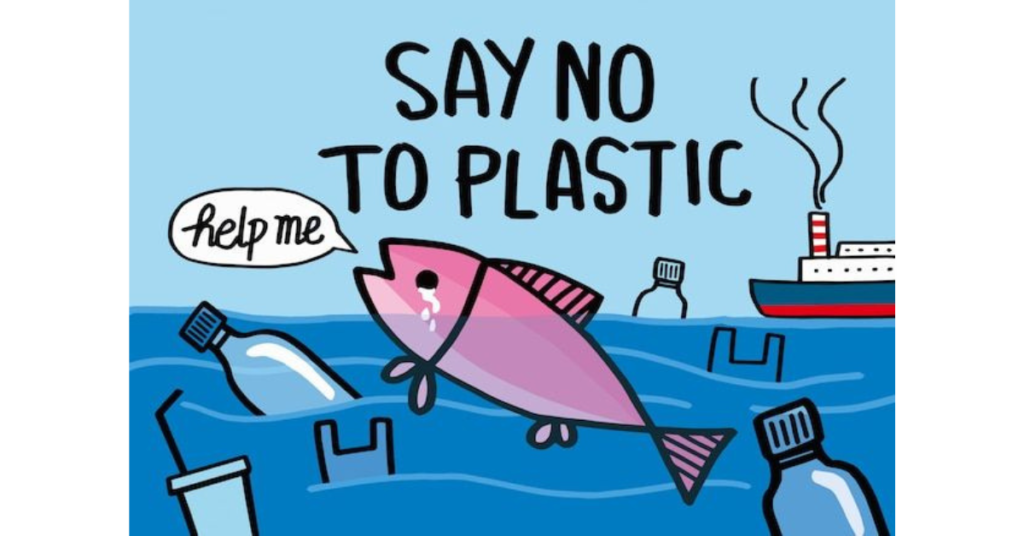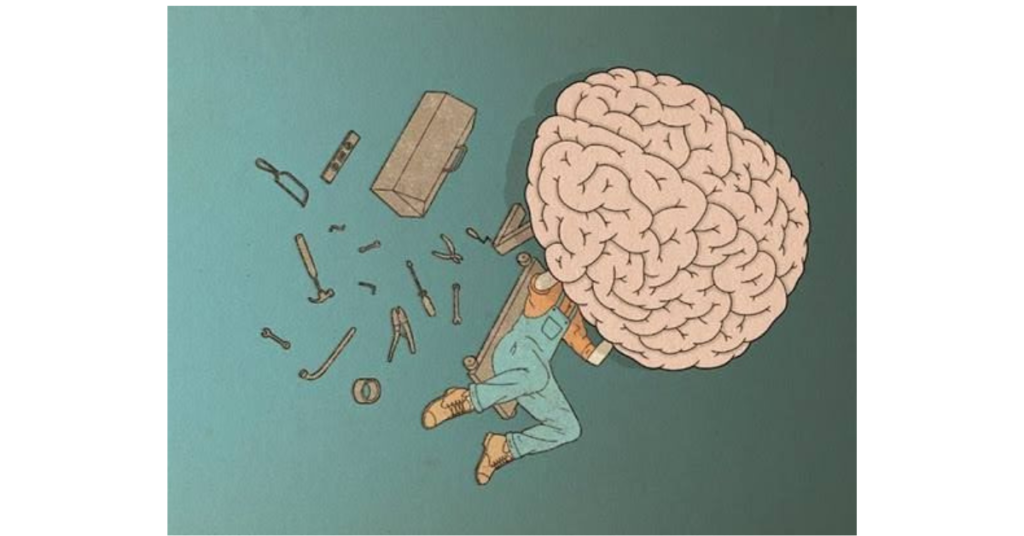Zero Waste Wonders: Your Ultimate Guide to Sustainable Living

What is Zero Waste Living?
In a world where our daily choices are having a greater impact on the environment, the zero waste lifestyle has emerged as a seed of hope for those seeking to reduce their ecological footprint. This comprehensive guide aims to demystify the concept, providing practical tips, examples, and insights into adopting a zero waste lifestyle in a humanly feasible way.
Let’s grasp the essence of the zero waste lifestyle before diving into practical tips. Before we jump into the nitty-gritty of practical tips, let’s get cozy with the heart and soul of the zero waste lifestyle. It’s not about the impossible task of generating absolutely zero waste. Instead, it’s all about rocking the three R: reduce, reuse, and recycle, to give Mother Earth a high-five. Ready to dive in? Let’s roll!
Table of Contents
Practical Tips for a Zero Waste Living :-
SAY NO to One-Use Plastics:

Imagine you’re on a mission to be a superhero for the environment. One of your biggest enemies? Single-use plastics. These are things like plastic water bottles, straws, and bags that we use once and then toss away. In the world of zero waste living, we say, “No, thank you!” to these one-time-use villains.
Here’s the deal: Single-use plastics are like the bad guys causing pollution and harming our planet. But fear not, young eco-warrior! By refusing to use them, you’re becoming a planet-saving hero. Grab a reusable water bottle, carry your own utensils, and use a cool reusable bag when you shop. It’s your way of saying, “I’m not letting these plastics mess with my world!”
Statistics: According to a report by the Ocean Conservancy, plastic straws and stirrers are among the top ten items found in beach cleanups.
Embrace a Minimalist Mindset:

So, embracing a minimalist mindset is like becoming a superhero of simplicity. Instead of having a gazillion things, you decide to be a bit of a ninja with your stuff.
Imagine your room is your superhero headquarters. The minimalist mindset is about keeping only the stuff that really matters and makes you happy. It’s not about having a zillion action figures; it’s about having the ones that bring a mega-smile to your face.
Less clutter, less stress – that’s the mantra. So, think of yourself as a minimalist superhero, keeping only what truly sparks joy and awesomeness in your world.
Statistics: The average American generates over 4 pounds of trash per day, contributing to the growing waste problem.
DIY and Upcycling Projects:

DIY is all about rolling up your sleeves and creating things yourself. Remember those times when you fixed stuff at home instead of throwing them away? That’s the spirit! DIY is your chance to be a bit of a handy wizard, making cool stuff with your own hands.
Now, upcycling is like giving a second life to things that might seem old or not useful anymore. Instead of tossing them out, you turn them into something awesome. For example, that old shirt you don’t wear? Turn it into a trendy bag. Those glass jars in your recycling bin? They can become stylish storage containers.
It’s not just about saving money; it’s about turning the ordinary into extraordinary. So, channel your inner creative genius, grab some tools, and let the DIY magic begin! You might surprise yourself with what you can create. Happy crafting!
Statistics: Upcycling reduces the demand for new raw materials; for instance, recycling one ton of paper saves 17 trees.
Composting for Kitchen Waste:

Imagine composting for kitchen waste like cooking up a magical recipe for your plants and the environment. Instead of tossing those veggie scraps, coffee grounds, and eggshells into the trash, you gather them in a special bin. This bin is like a cauldron where nature’s own chefs—microorganisms—get to work breaking down the scraps into a nutrient-rich concoction we call compost.
Think of it as making a hearty stew for your garden. Over time, this compost becomes a superfood for your plants, helping them grow big and strong. It’s like recycling your kitchen leftovers to create a powerful elixir that turns your garden into a thriving, green paradise. So, next time you peel those potatoes or brew a cup of coffee, toss the scraps into your compost bin, and let nature do its cooking!
Statistics: The Environmental Protection Agency (EPA) estimates that food scraps and yard waste make up about 30% of what we throw away.
Zero Waste is a challenge!
Living a zero waste lifestyle is not without its challenges. One may encounter resistance from a society ingrained in convenience and disposability. The initial transition may seem daunting, but persistence pays off.
Social Pressures

Imagine you’re at a friend’s party, and they hand you a drink with a plastic straw. You politely refuse, explaining that you’re into this cool thing called a zero waste lifestyle. Now, here’s where social pressures kick in. Your friends might not get it right away. They might raise an eyebrow or make a comment like, “Come on, it’s just a straw!”
It’s not that they’re against you saving the planet; it’s more about breaking away from the usual habits. People are used to convenience, and your choices might feel a bit out of the norm. But fear not! It’s all about calmly explaining why you’re doing what you’re doing. Maybe share a fun fact about how many straws end up in the oceans each day, or just smile and say, “I’m doing my part to keep it green!”
In essence, social pressures are those moments when you feel a bit different from the crowd because you’re making eco-conscious choices.
RELATED : 30 Days Sustainable Living Challenge
Limited Access to Bulk Stores
Okay, imagine you’re at a grocery store, and you know how most stuff comes in packages – like chips in bags, pasta in boxes, and so on? Now, in the world of zero waste living, some people prefer to buy things in a different way. They like to go to special stores where you can bring your own containers and fill them up with just the amount you need. It’s like a pick-and-mix candy store, but for things like rice, pasta, and nuts.
Now, the thing is, not everyone has these special stores nearby. Some folks live in places where every item at the store is already packed up. So, when we talk about limited access to bulk stores in the zero waste world, we mean that not everyone has the option to buy things without all the extra packaging. But don’t worry, even if you can’t get to a bulk store, there are still plenty of other cool tricks to cut down on waste, like choosing products with less packaging or recycling what you can. It’s all about finding what works best for you.
Balancing Work and Zero Waste Commitments:

Let’s break it down. Just as you plan your work tasks, you can plan your zero waste efforts. For example, during your lunch break, choose places that use less plastic or bring your own reusable containers. It’s a small switch that doesn’t mess with your work routine but makes a big impact.
On weekends or evenings, when you have more time, you can focus on bigger zero waste tasks, like meal prepping with less packaging or finding local stores that support your eco-friendly mission.
It’s all about finding that sweet spot where your work life and zero waste goals can shake hands without causing stress. So, think of it as adding a cool eco-twist to your daily schedule—one less plastic bottle at a time!
The BIG Rewards of a Zero Waste Lifestyle.
While challenges exist, the rewards of a zero waste lifestyle are profound and personally fulfilling.
Environmental Impact
Let’s break down the “Environmental Impact” of a zero waste lifestyle in simple terms. Think of it like being a superhero for the planet.
When you reduce, reuse, and recycle, you’re basically using your superpowers to create less waste. Imagine all the trash we produce is like a villain trying to harm the Earth. But, by making smart choices—like saying no to single-use plastics, reusing stuff, and recycling—you’re fighting back!
The less waste we make, the happier our planet becomes. It means fewer resources are used up, less pollution is created, and our home, Earth, stays clean and healthy. So, every time you choose to be a zero waste hero, you’re making a positive impact on the environment. You’re like Captain Planet, but in your everyday choices! Keep up the good work!
Save Money
Alright, let’s talk about “Financial Savings” in the world of a zero waste lifestyle. Imagine it as a clever way to save your money while being a planet-friendly superhero.
So, when you reduce waste by not buying things you don’t need and reusing stuff instead of tossing it, you’re actually saving money. It’s like having a superpower to make your wallet happy.
Think about it – when you buy things with less packaging or choose items that last longer, you’re not just helping the environment, but you’re also avoiding unnecessary spending. Plus, when you make your own snacks or meals instead of buying pre-packaged ones, you’re saving even more.
So, a zero waste lifestyle isn’t just good for the planet; it’s like having a secret sidekick that helps your finances too. It’s a win-win situation! Keep being a money-saving and also an Earth-loving hero!
Mindful Consumption:
Here is how you can make “Mindful Consumption” as easy as picking your favorite flavor of ice cream!
Okay, imagine you’re at an ice cream shop. Mindful consumption is like choosing your scoop with intention. Instead of grabbing all the flavors just because they look tempting, you pause and think, “What do I really want?”
Now, apply this to your everyday stuff, like clothes or gadgets. Instead of buying things just because they’re there, you think, “Do I really need this?” It’s about being aware of what you’re getting and making choices that matter to you and the planet.
So, mindful consumption is like being a thoughtful ice cream connoisseur, but with everything you bring into your life. It’s not about having more; it’s about having what truly brings you joy and value. You’re in control, making choices that are delicious for you and gentle on the Earth.
RELATED : The Ultimate Guide to Personal Sustainability
Frequently Asked Questions.
Is it possible to adopt a Zero Waste Lifestyle in a busy life?
A: Absolutely! Start with small changes, like carrying a reusable water bottle or using a reusable shopping bag. Plan your meals to reduce food packaging waste. Small, consistent efforts add up over time.
What are some easy zero waste swaps for beginners?
A: Simple swaps include using a reusable coffee cup, switching to a safety razor, using cloth bags instead of plastic, and opting for a refillable water bottle. These changes are easy to implement and make a significant impact.
How can I reduce waste in my kitchen?
A: Composting kitchen scraps, buying in bulk to minimize packaging, and using cloth instead of paper towels are effective ways to reduce kitchen waste. Additionally, try meal planning to minimize food waste.
What are the challenges of adopting a Zero Waste Lifestyle?
A: Challenges may include social pressure, limited access to bulk stores, and time constraints. Overcoming these challenges involves educating others, finding local sustainable options, and planning to integrate zero waste practices into a busy schedule.
How does a Zero Waste Lifestyle benefit the environment?
A: A Zero Waste Lifestyle helps reduce pollution, conserve resources, and minimize the environmental impact of waste disposal. It contributes to the overall health and sustainability of our planet.
Can I follow a Zero Waste Lifestyle on a budget?
A: Yes, a Zero Waste Lifestyle can be budget-friendly. Many zero waste practices, such as using cloth bags or buying in bulk, can save money in the long run. Focus on making sustainable choices that align with your budget.
What are some resources for learning more about Zero Waste Living?
A: Books like “Zero Waste Home” by Bea Johnson and online platforms such as blogs and social media accounts dedicated to zero waste living provide valuable insights and tips.
Conclusion
We invite you to explore and implement the practical tips we’ve shared. For a comprehensive guide and additional resources, visit our main page at “WeCareEarth.com.” This hub serves as a central source of information, offering insights, tools, and community support to empower individuals in making significant strides toward reducing their environmental footprint. Remember, the path to sustainability is a shared endeavor, and by connecting with like-minded individuals on WeCareEarth, you become part of a global movement actively contributing to a healthier, more sustainable planet.
References We Took To Prepare this Blog Post:
- Ocean Conservancy. (https://oceanconservancy.org/)
- Environmental Protection Agency (EPA). (https://www.epa.gov/)
